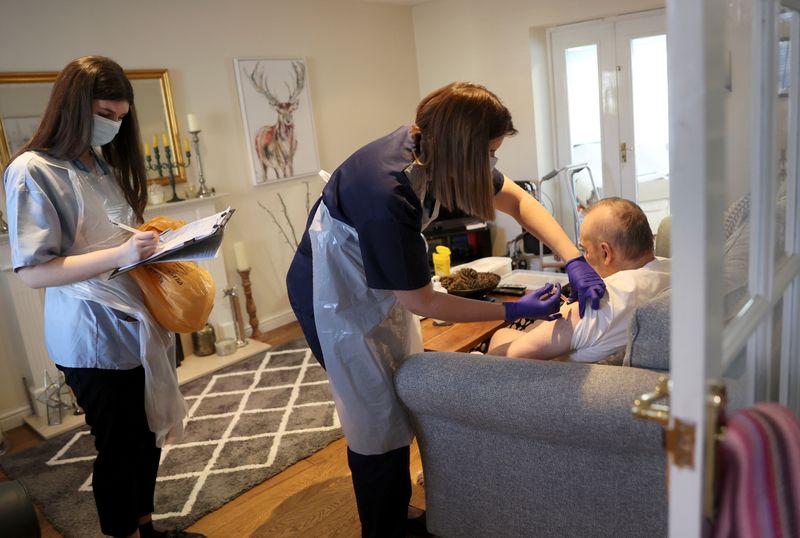By Alistair Smout
LONDON (Reuters) - Police and teachers will not jump to the head of the queue in the second phase of Britain's COVID-19 vaccination rollout, with people instead prioritised by age, officials advising the government said on Friday, describing this as the best way to keep up the pace of immunisations.
Britain's vaccine programme has been among the fastest in the world, meeting a government target to offer a first dose of vaccination to 15 million high-risk people by mid-February.
Some frontline workers such as police and teachers had been calling for prioritisation on the basis of their jobs, but Professor Wei Shen Lim, COVID-19 chairman for the Joint Committee on Vaccination and Immunisation (JCVI), said such an approach could complicate the rollout.
"Following an age-based programme will be simple, and simplicity has been one of the cornerstones of the current programme in terms of speed and its success," he told a news conference.
Britain aims to complete the first phase of its vaccine rollout by mid-April.
While the priority list for that phase was largely determined by age, with all over-50s set to be offered a vaccine, health and care workers and clinically vulnerable people have also been prioritised.
Announcing the prioritisation list for phase 2, Lim said all those aged between 40-49 would be next in line for the shot, then those aged 30-39, then those aged 18-29.
The JCVI said that an age-based approach remained the most effective way of reducing death and hospitalisation from COVID-19, even in those under 50. Giving shots by job would be logistically complex and could result in delays, it said.
The government said it would follow the recommended approach, but not everyone welcomed the advice.
John Apter, chairman of the Police Federation of England & Wales, said it was "a contemptible betrayal of police officers".

"Their anger is palpable, this will not be forgotten."